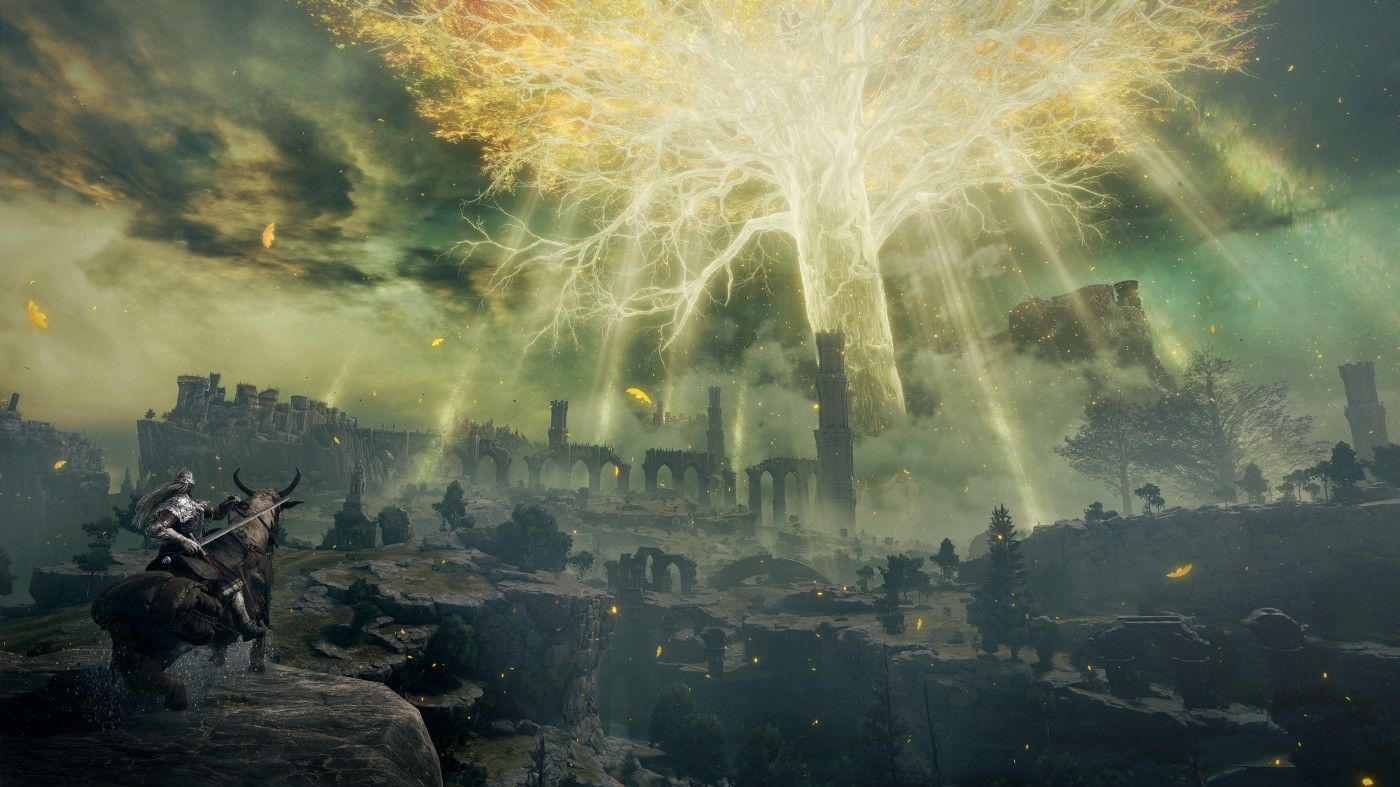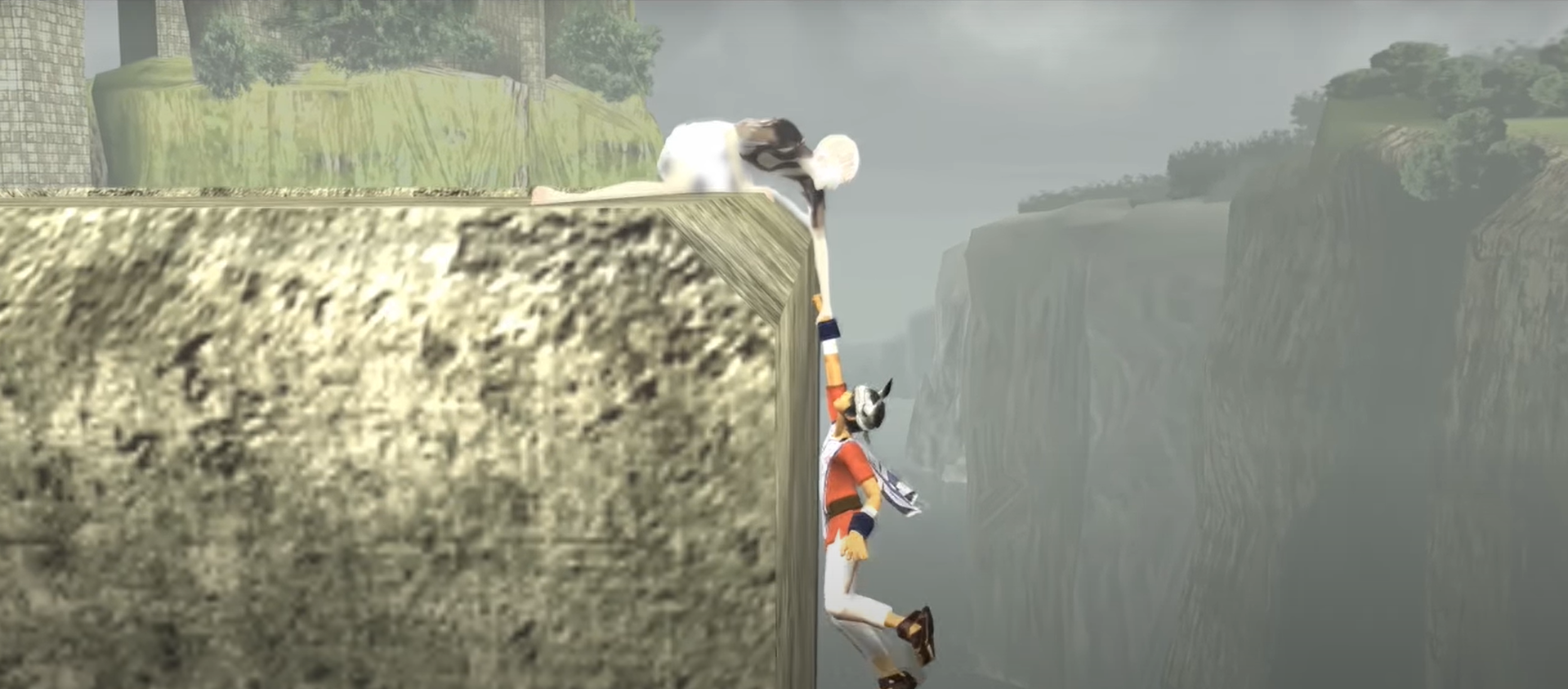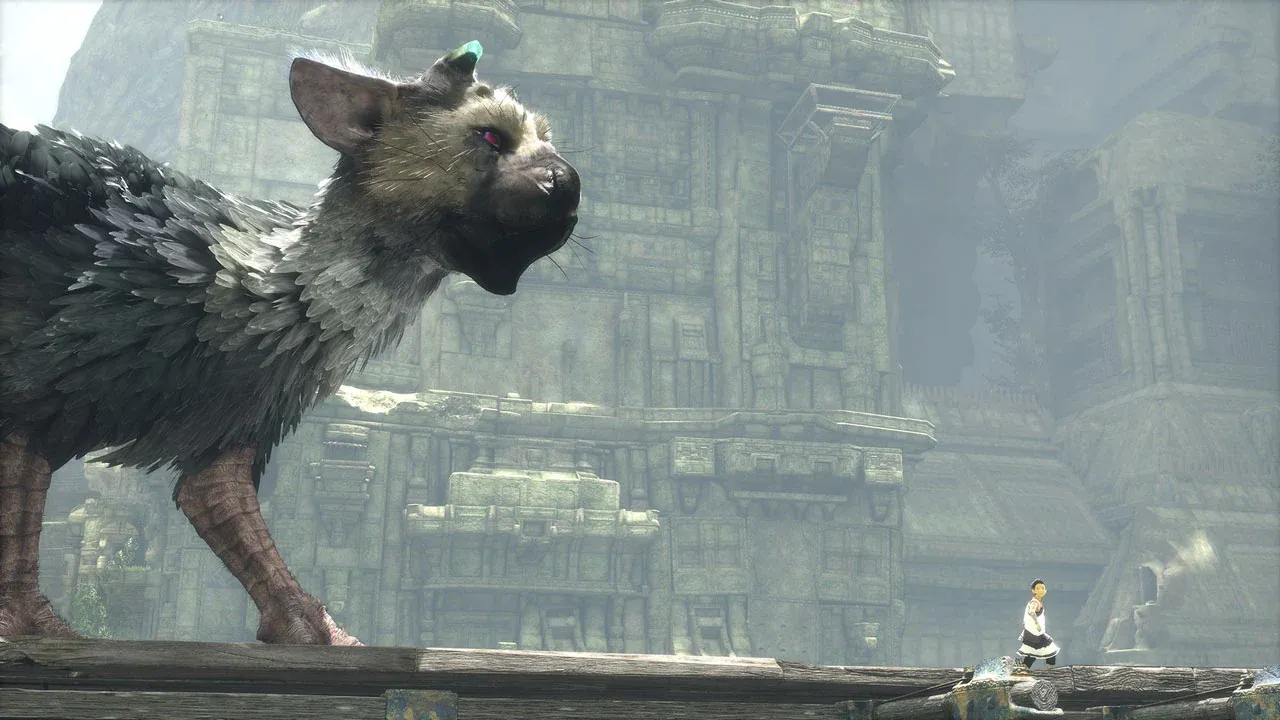What We Talk About When We Talk About Perfection
What is perfection in a game?

Three nights ago I finished playing Metroid Prime Remastered. A re-release of the 2002 game, this modernized masterpiece stays out of the way of the original by enhancing what made it great upon its celebrated release over twenty years ago. Then as now, Metroid Prime received rave reviews celebrating every aspect of its design, from gameplay to score to graphics. Then as now, Metroid Prime stands tall as a pinnacle of perfection in gaming, a testament to thoughtful and innovative action-adventure gameplay that crosses genres and provides the player with an interactive experience that feels inarguably perfect.
Gaming critique and enjoyment have been long plagued by the pursuit of perfection. We seek annual greatness, through awards and discourse, and generously hyperbolic statements. In the context of entertainment value, gamers and journalists alike seek to assign an arbitrary value to games in order to enforce a sort of subjective standard for what a game should or should not be. In this effort, we regularly use words and titles to differentiate the merely good from the utterly resplendent: Game of the Year, 10/10, Greatest of All Time, Perfect.
Maligning The Flaw
In the case of Metroid Prime, it's difficult to not use a word like "perfect" to describe an utterly sublime experience. IGN granted it a 10—a masterpiece by their editorial standards; Electronic Gaming Monthly assigned it a perfect score upon release 22 years ago, and in the interim, it has been hailed as one of the best games ever again and again, its coronation in the series passing back and forth with Super Metroid ad infinitum.
We do not need to define the subjectivity of art and appreciation, nor argue the tired truth that video games are art. What is compelling about beauty is how it evokes something in the viewer, and in the case of video games, the experiencer. Multiple players and reviewers repeatedly referring to Metroid Prime as perfection across the course of its 22-year life reinforces the statement as absolute—not to mention the quality of the game as experienced by finally playing it. Any work of art of high caliber that can maintain its designation of quality for multiple decades is considered a masterpiece by its mere existence alone. At this point, Metroid Prime can be asserted to be as important to video games as The Matrix is to film. While neither is without flaw and both exist as pastiches of what came before, their ability to cohesively form a polished experience evokes a sense of wonder that stands firm against the march of time.
It is not the cause of any game to be perfect, and games themselves can only be perfect as weighed by the person experiencing them. What we assign as good and bad is constantly in flux, with games of yesteryear losing their charm against new fare. The enviable "something" that exists at the soul of a piece of art that can be forever enjoyed from generation to generation is chased by many and found by the few, and in video games this locus of design shifts in a medium so young. While anyone and everyone wishes to loudly assert that their favorite video game is worthy of "Game of the Year" prestige, actual masterpieces are fewer and farther between—and even masterpieces are not without flaws.

Striving For Perfection
We seek perfection in art because we are desperate for its existence. Though the drive toward perfection is inherently flawed and demands sacrifice, the average person internally and externally seeks it out. It can be understood that we often seek the perfection in created works that we cannot find in ourselves—when it comes to a piece of art that's been crafted by another, both its positives and negatives are magnified. But we also commonly hold the subjective view that any number of things can be "perfect" despite acknowledging that human beings are flawed, so their works must be flawed too. Any artist will tell you that finished is better than perfect and that we should strive for excellence instead of flawlessness—it's difficult to critique something that doesn't exist.
The drive toward perfectionism often carries with it tremendous drawbacks, including harmful self-critique, procrastination, self-denigration, abuse, and emotional pain. Knowing these things, it's not uncommon to see people arguing amongst themselves over what constitutes the perfect video game.
The oft-repeated quote "A delayed game is eventually good, but a rushed game is forever bad" dubiously attributed to Shigeru Miyamoto, has been used again and again to describe the positivity of delays. In an industry that's filled with harmful labor practices like crunch (which can have developers sleeping in their offices or not seeing their families for months during development), we are accustomed to acknowledging that some of the best games ever created have been done under extremely intensive circumstances. From Final Fantasy VI to Chrono Trigger to recent games like Elden Ring, striving to create the best in the gaming world comes with enormous costs.
It goes without saying that seeking perfection as an end goal is not only impossible but dangerous. While perfection can be unattainable for developers, there is merit in wanting to create something above and beyond your predecessors. But the ultimate conversation about what perfection looks like is deeply subjective, especially in the video game medium.

It's difficult to describe the history of video games by their ages. We want to believe we are living in the "modern age" of gaming, and possibly we are. There are more games than ever before by a large margin, and fidelity and gameplay have changed in leaps and bounds in only the last ten years. AAA games are able to weave titanic and prestigious storytelling experiences with sales that rival the most popular films, and indie games give us intimate and creative looks at what is truly capable in the artistic craft. While aggregate articles listing the best video games will never go out of style, the actual material conversation around the perfect video game has not quite clawed its way out of commercialism to join the merits of equivalent artistic discussion in film, books, or music. This has less to do with the games themselves, and more to do with the way the average consumer appreciates them.
In 2014, IGN ran an article titled "What Makes the Perfect Video Game?" What makes this conversation and appraisal truly challenging are video games themselves—while other art forms come with certain forms of limitation, video games can be heralded as a form of art containing all other forms. Video games are visual, musical, interactive, and experiential. They are comprised of narrative and action, with a wide berth of thousands of games that do not resemble one another at all. Where one game might require complete concentration and interactive control like Final Fantasy XIV, another game like Everybody's Gone to the Rapture can contain little to no gameplay at all. When we seek perfection in gaming or even hope to discuss with merit the "best," the field is not even from the start. Experiential games and deeply subjective preferences across the medium create completely different definitions for generations of gamers. How do you compare a game like Metroid Prime to one like NORCO? Where do you even begin?
Personal Appraisal
In that same IGN article, editors and writers discuss what should be considered when talking about the perfect video game. Story is important, as nearly every participant brings up the fact that storytelling in games is paramount. But again we are brought up short by what story is in a game, and how it can look vastly different across experiences. A story can be dramatic and traditional, with emotional beats that follow a Hollywood arc a la God of War: Ragnarok. A story can also be incredibly minimalistic: games like Journey and Unpacking contain no written or spoken language, but tell impactful and emotional tales that resonate with millions of people.
The capacity for human beings to understand stories and to assign personhood to inhuman things lies at the very core of consciousness. There is an infamous scene in the first season of Community where Jeff tells his captive Greendale study room audience that he can pick up a pencil, tell you its name is Steve, and then break the pencil in half to force an emotional response. While it is possible for many games to manipulate their audience to elicit a strong response, as done by games like Bioshock and The Last of Us, any gamer might agree that the best stories are the ones that captivate them fully.
Immersion, cohesion, gameplay, story—all these things together create the recipe for the perfect video game. Still, there are many instances where every one of these important ingredients is present in a game that is still replete with flaws but should be considered a "perfect" experience. There is no greater example of this dichotomy than in the works of Fumito Ueda.

Perfection Is A Flaw
It's difficult to not continuously return to this man's oeuvre. Team Ico and genDESIGN have created three of the most fascinating—and revered—video games of all time. Ico has influenced countless indie darlings and even inspired Hidetaka Miyazaki to quit his job at a soulless American tech firm and start working at FromSoftware where he conceptualized Demon's Souls.
In 2016, the New Yorker published an essay titled "Fumito Ueda’s Slow Route to Perfection." Ueda-san's influence has been long-lasting and impactful—he infamously caused Roger Ebert to reconsider his stance on video games as art, and has been praised by the likes of Guillermo del Toro. Ueda is a creative individual whose attempts at impacting the audience include both provocation and endearment. The many delays that The Last Guardian suffered were due to Ueda's infamous perfectionism and unflinching directorial vision—a drive and method that are both infuriating and admirable. Akin to Hideo Kojima, Ueda has found video games to be his preferred method for showcasing his art, even if he might find other mediums less taxing.
"It's very much like a craftsman that's constantly going over the same art over and over again to try and find that perfection." —Fumito Ueda
Ico, Shadow of the Colossus, and The Last Guardian are deeply flawed video games that are mired in choices that seem inconsistent with player enjoyment. Each game features an element completely out of the control of the player, forcing them to apply understanding to an experience that will only meet them halfway. From Shadow of the Colossus' strange control scheme and frustrating camera to Ico and The Last Guardian's stubborn deuteragonists, Ueda's works are as infamous as they are criticized. And for all their obvious flaws, I believe them to be a trio of perfect games.

Perfection is not the absence of flaws or the irrefutable congruence of features traditionally held to be "the best." Shadow of the Colossus has long held its frame as a masterpiece of artistic design in spite of its gameplay idiosyncrasies—what makes the game "perfect" is its beauty, and its strengths. Somewhere in the intersection of their design facets, Ueda's works feel perfect in the way any classic painting does. While one might be able to point out perceived flaws in a Monet or a Da Vinci, these flaws are played as strengths because they are crafted from the standpoint of a master. Perfection in gaming is not one-sided, as it takes the participation of both the creative team and the player to agree on the majesty of what has been made.
In The Last Guardian, the mileage may vary in how the overall experience lands. The story is told through gameplay, through interactions between the boy and Trico. Trico is not a tool—Ueda made certain that the player understood this beast was not a vehicle to be summoned on a whim. The interactions between the player and Trico can be at the least annoying and at the most intensely frustrating because this griffin puppy has its own agenda within the confines of the game's world. Patience is requisite in order to fully appreciate what The Last Guardian seeks to accomplish through its textured gameplay experience, and the perfection in its narrative might come only after the credits roll and the player is given enough room to really consider the gravitas of what occurred.
Ueda's perfection is not mine, and it's not yours. Through unflinching directorial vision, there is a Lynchian agenda to his design. Few artists ever want to admit that their greatest work is their magnum opus, and seldom do artists even agree that their "greatest work" as assigned by the audience is what they hold close to their hearts. Ico, Shadow of the Colossus, and The Last Guardian would not be the same experience if they were sandblasted of their faults and it's in these idiosyncracies that I can declare them perfect with my whole chest.
As video game appreciation changes and evolves with the times, what is heralded as perfect might change as well. Game design no longer has the limits it did even twenty-five years ago, and for some, it's difficult to see the equivalent majesty of Chrono Trigger and Final Fantasy XVI. In seeking perfection—in truly viewing something as exceptional—the experiencer must become as vulnerable as the art itself. While games like Metroid Prime and Ico might be far removed from one another in design, concept, and execution, neither is less important, or less perfect.
